Event
Global Expectations and Worries: Northeast Asia's Perspectives on Trump's Return to the White House
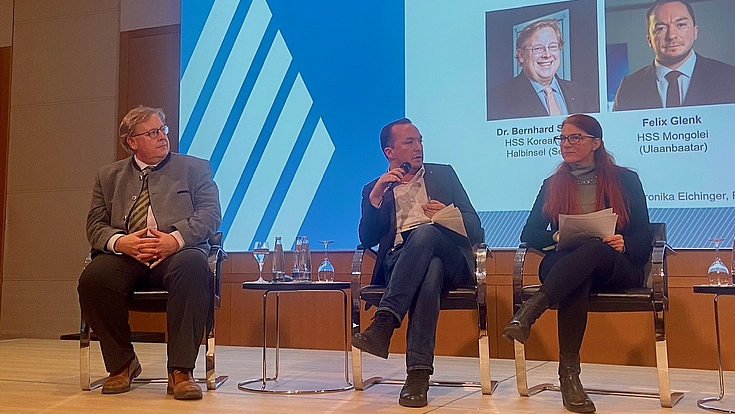
The evening was moderated by Veronika Eichinger, Head of the Department for Northeast and Central Asia at the Institute for International Relations.
The global media response has been diverse, reflecting varying degrees of anticipation and apprehension. It has also an impact on countries HSF is active to promote peace, democracy and development. To delve into perspectives from Northeast Asia, the Hanns Seidel Foundation's Institute of International Relations convened the event “Perspektivenwechsel” (Change of Perspectives) on February 27th. Representatives from HSF offices in China (Beijing and Zhejiang), Korea, and Mongolia gathered to discuss the impact of the American elections on their respective regions.
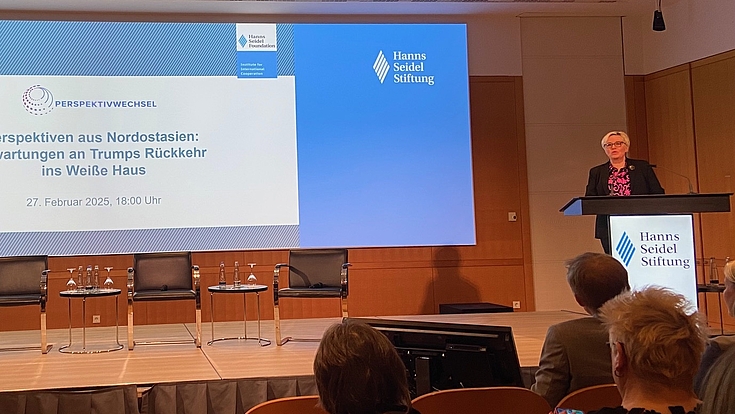
Opening of the event by Dr. Susanne Luther, head of the Institute for International Relations at Hanns-Seidel-Foundation in Munich.
The evening began with an introduction by Dr. Susanne Luther, head of the Institute for International Relations at Hanns Seidel Foundation in Munich, who highlighted the importance of understanding regional viewpoints in a rapidly evolving geopolitical landscape. Veronika Eichinger, head of the Department for Northeast and Central Asia in the Institute for International Relations, moderated the event, guiding the discussions and ensuring a comprehensive exploration of the topic.
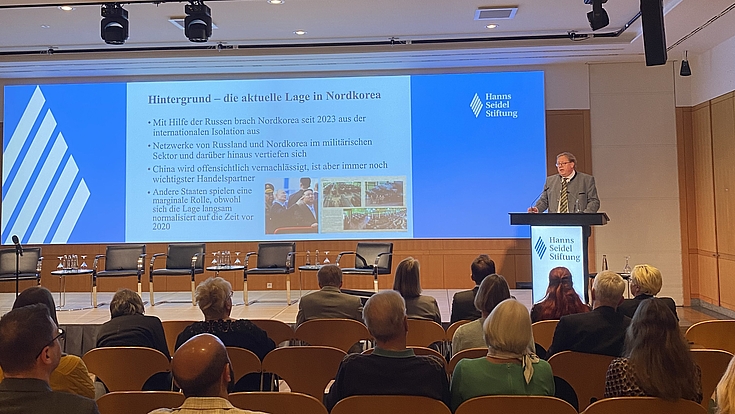
Presentation by Dr. Bernhard Seliger, HSF Korea focusing on the impact on the Korean Peninsula, with a focus on South Korea-US and North Korea-Russia relations.
Dr. Bernhard Seliger of HSF Korea provided insights into the Korean Peninsula, focusing on the intricate dynamics of South Korea-US and North Korea-Russia relations. He noted that while there are hopes for renewed diplomacy with North Korea, there are also concerns about the US president’s assertive diplomatic style and the potential for increased tariffs on Korean goods, which pose a significant challenge for South Korea's trade-oriented economy.
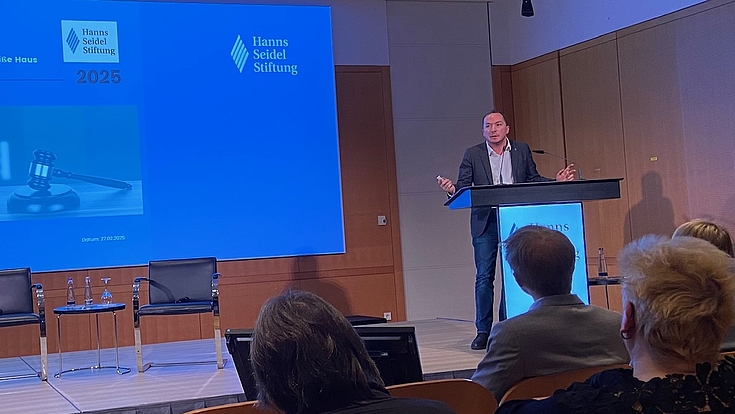
How does Mongolia see President Trump? Presentation by Felix Glenk of HSF Mongolia. Focusing on the withdraw of USAID development assistance. Key question: Who fills the vacuum and the gab that the US leaves behind in Mongolia. China? Europe? Russia?
Felix Glenk of HSF Mongolia then presented Mongolia's perspective on President Trump's second term. He highlighted the withdrawal of USAID development assistance as a key concern, raising the question of who will fill the resulting vacuum in Mongolia. China? Europe? Russia?
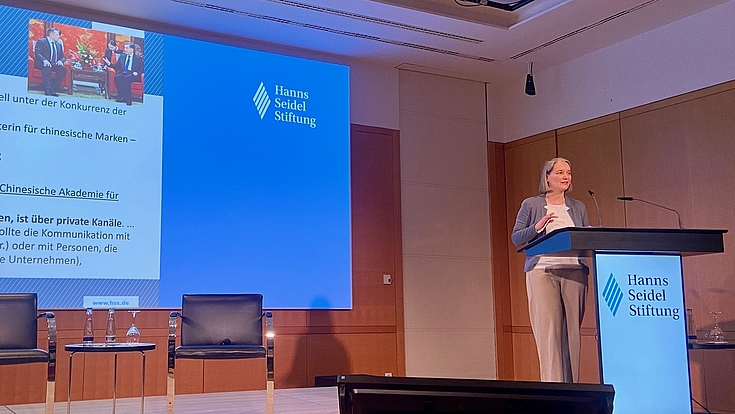
China is a crucial counterpart of the US in the diplomatic world - Debora Tydecks-Zhou of HSF China explains how China approaches the second presidency of Trump.
Debora Tydecks-Zhou of HSF China discussed China's approach to the second Trump presidency, emphasizing its crucial role as a diplomatic counterpart to the US. She pointed out that despite the perception of China as a monolithic state, a vibrant social media landscape exists with diverse opinions on Donald Trump. Dominik Sprenger of HSF Zhejiang elaborated on this, explaining how different segments of Chinese society perceive the US president.
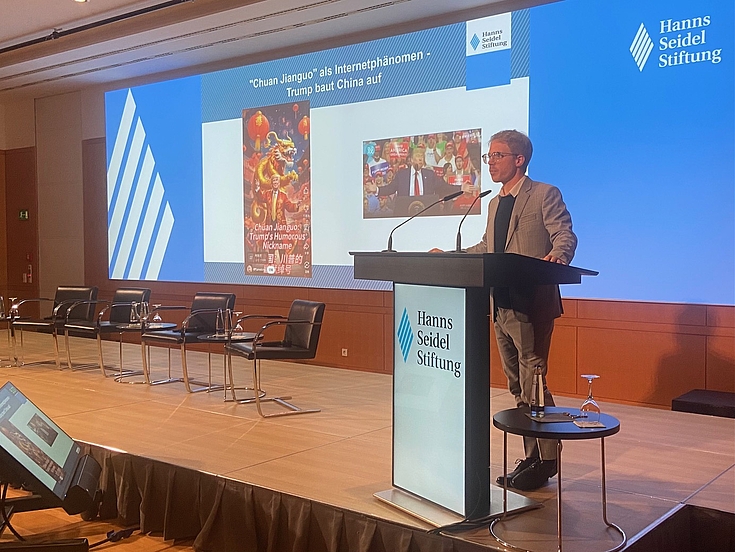
While China is often seen as a monolithic state, in fact there is a vibrant scene of social media, who have sometimes very different takes on Donald Trump, as Dominic Sprenger of HSF Zhejiang explains.
The event concluded with a lively discussion involving the audience. Questions revolved around Europe's role in the region, the significance of development aid for countries like Mongolia, and opportunities for academic exchange through scholarships, and how a stop of such offer by the US could impact academic mobility.
